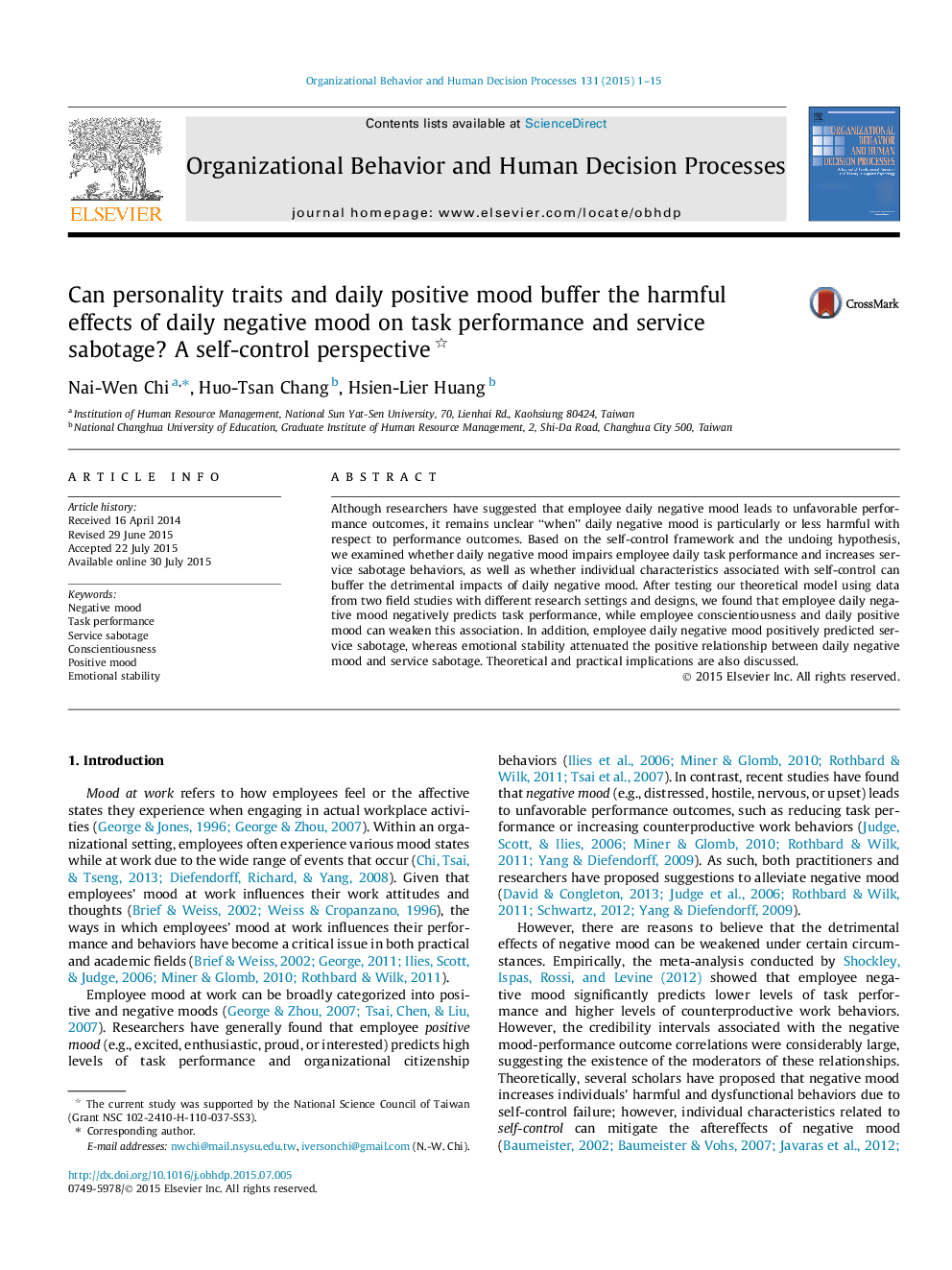| Article ID | Journal | Published Year | Pages | File Type |
|---|---|---|---|---|
| 888467 | Organizational Behavior and Human Decision Processes | 2015 | 15 Pages |
•Employee daily negative mood (DNM) decreases task performance.•DNM increases service sabotage.•Conscientiousness buffered the negative DNM-task performance relationship.•Daily positive mood mitigated the negative DNM-task performance relationship.•Emotional stability weakened the positive DNM-service sabotage relationship.
Although researchers have suggested that employee daily negative mood leads to unfavorable performance outcomes, it remains unclear “when” daily negative mood is particularly or less harmful with respect to performance outcomes. Based on the self-control framework and the undoing hypothesis, we examined whether daily negative mood impairs employee daily task performance and increases service sabotage behaviors, as well as whether individual characteristics associated with self-control can buffer the detrimental impacts of daily negative mood. After testing our theoretical model using data from two field studies with different research settings and designs, we found that employee daily negative mood negatively predicts task performance, while employee conscientiousness and daily positive mood can weaken this association. In addition, employee daily negative mood positively predicted service sabotage, whereas emotional stability attenuated the positive relationship between daily negative mood and service sabotage. Theoretical and practical implications are also discussed.
